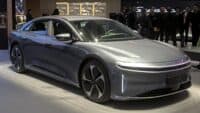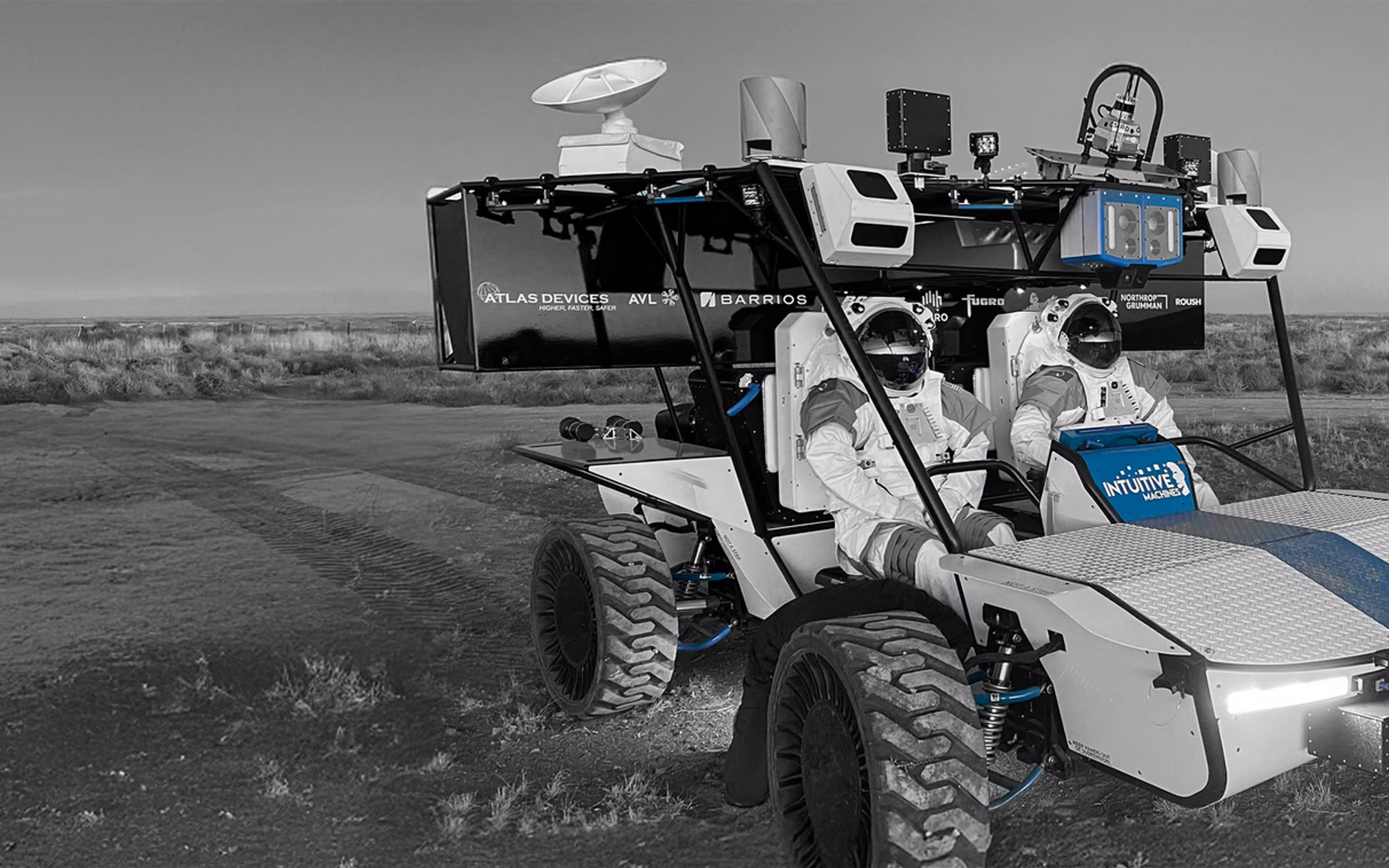
Key Points:
- Small EV companies like Rivian and Lucid struggle due to intense competition and reliance on partners like Amazon.
- The EV market is crowded with major brands, making it tough for smaller players to compete.
- Rivian’s future is uncertain, with potential supply chain issues threatening their survival.
- While the EV space may be challenged, the AI sector is soaring. Investors have already identified ‘The Next Nvidia’. See what all the excitement is about by clicking here now.
Douglas and Lee discuss the challenges facing smaller EV companies like Rivian (NASDAQ: RIVN) and Lucid (NASDAQ: LCID), highlighting their struggles in a highly competitive market dominated by legacy automakers. They point out that even if these companies significantly increase their sales, they still face difficulties in becoming profitable due to the scale required. The conversation also touches on Rivian’s reliance on Amazon (NASDAQ: AMZN), which owns a significant stake in the company. They express concern over Rivian’s production issues, especially with their electric vans for Amazon, and the potential consequences if Amazon decides to pull back from the agreement. They also note the increasing role of the U.S. Postal Service in Amazon’s delivery operations, suggesting that Amazon is flexible with its delivery partners. Ultimately, they are pessimistic about the future of small EV companies like Rivian, with Douglas concluding that Rivian might be “dead” in the long run.
Transcript:
Yeah, yeah.
We talk about the small-ish EV companies all the time, particularly Rivian and Lucid.
To me, those companies have a whole bunch of problems.
Number one, they are so small that even if their sales quadruple in terms of unit sales, they’re still not making money.
You’d probably have to see unit sales up 10x at a couple of these companies for them to be doing well.
The other one is the amount of competition in this market right now is absolutely insane.
Forget Tesla, okay?
Every legacy car company in the world has started to launch a fleet of EVs.
You know, you’ve got Cybertruck, you’ve got the Ford F-150 Lightning over here and the SUV.
The Mustang Mach.
The Mach-E, Cadillacs come out.
Probably a year or two from now, you’re going to see 10 to 20 major branded EV products.
It’s going to be a Cadillac.
BMW and Porsche already have them.
So I hate this business if you’re small.
Well, and again, Rivian basically rides on Amazon because, you know, Amazon owns like 18% of it and they’re the ones that have kind of fed the money in the door.
And, you know, the fact that they had to stop production of the, I think, thousand electric vans that they were supposed to build for Amazon because of supply chain issues.
What’s going to happen if Amazon puts a lot of effort into making their delivery service electric, and then they encounter the same problems that all EVs encounter?
The weather issues, the lack of holding a charge or whatever the case might be.
I mean, if that doesn’t pan out the way that they see it or have it drawn up, the game plan drawn up, then they can just immediately say, well, we have no more interest in this.
Amazon has backed away from the original agreement some already.
Yeah.
But you’re right.
If you have logistics problems of any kind at Amazon, they’re going to toss you.
I mean, logistics problems are the biggest nightmares you can have if you’re in the e-commerce business.
So I wouldn’t expect Amazon to bail them out at all if they’ve got some sort of supply chain quality problem.
They don’t want to be in the electric van business.
They just want them to work for their eco-friendly goals that they have in the C-suite.
But the thing that’s really interesting, and I noticed this the other day, you know who’s doing more and more delivery for Amazon?
The U.S. Postal Service.
That may be the only thing that saves the U.S. Postal Service because they clearly have never been able to make money.
And why wouldn’t Amazon just say, we’ll let the post office do most of this?
Well, listen, you do see Amazon trucks, but you also see other kinds of trucks, other branded trucks delivering Amazon products.
I’m sure that they’re sophisticated systems.
They run on gasoline.
But they also pick the, you know, whatever is going to get it there fastest.
I think they’re agnostic about who delivers it if the margin is good and it gets there fast and the customers.
You know, I’d like to say, let’s look at Rivian’s next earnings, or let’s look at the next stock price, but I want to tell you something.
We can talk about this again in a couple of months or whatever, but I think that this thing’s dead.
It’s Your Money, Your Future—Own It (sponsor)
Are you ahead, or behind on retirement? For families with more than $500,000 saved for retirement, finding a financial advisor who puts your interest first can be the difference, and today it’s easier than ever. SmartAsset’s free tool matches you with up to three fiduciary financial advisors who serve your area in minutes. Each advisor has been carefully vetted and must act in your best interests. Start your search now.
If you’ve saved and built a substantial nest egg for you and your family, don’t delay; get started right here and help your retirement dreams become a retirement reality.
Thank you for reading! Have some feedback for us?
Contact the 24/7 Wall St. editorial team.





